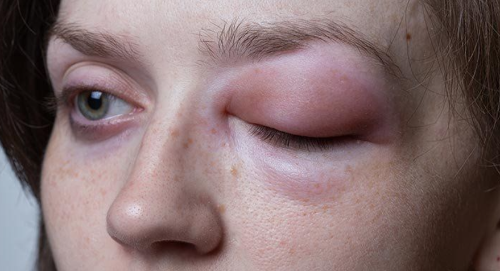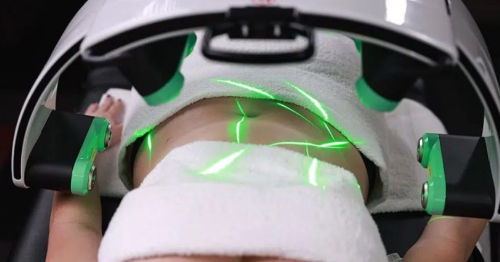Related searches
-
HAE Diagnosis and Management Guide

-
C1 Inhibitor Deficiency Therapy

-
Top Hereditary Angioedema Specialists

-
Hereditary Angioedema Causes and Triggers

-
Effective HAE Treatment Options

-
Hereditary Angioedema Symptoms and Treatment


What Is Hereditary Angioedema?
Hereditary Angioedema is caused by a deficiency or dysfunction of the C1 inhibitor protein, which plays a vital role in regulating swelling and inflammation. Without proper function, individuals with HAE can experience painful episodes of swelling in areas such as the face, hands, feet, and even the throat, which can become life-threatening if untreated.
Common Symptoms of Hereditary Angioedema
Symptoms of HAE often appear during childhood or adolescence and may worsen over time. The most notable symptoms include:
Sudden and severe swelling in the face, limbs, or abdomen.
Abdominal pain, nausea, and vomiting caused by swelling in the gastrointestinal tract.
Breathing difficulties due to airway swelling.
If you or a loved one experience these symptoms, especially without an apparent allergic cause, it’s important to seek medical advice.
What Causes Hereditary Angioedema?
HAE is a genetic condition, meaning it is passed down through families. The condition results from mutations in the SERPING1 gene, which produces the C1 inhibitor protein. External triggers such as stress, infections, minor injuries, or hormonal changes can often provoke HAE attacks.
Effective Treatment Options for HAE
Although there is no cure for Hereditary Angioedema, several treatment options can help manage and prevent symptoms:
Acute Treatment: Medications like C1 inhibitors or kallikrein inhibitors can stop swelling episodes as they occur.
Prophylactic Treatment: Regular preventative treatments, such as monoclonal antibodies or androgens, can reduce the frequency and severity of attacks.
Lifestyle Modifications: Identifying and avoiding personal triggers, such as certain foods or stressors, can help minimize attacks.
Why Early Diagnosis Matters
An early and accurate diagnosis of Hereditary Angioedema is crucial for effective treatment and prevention of complications. If you suspect you or someone you know may have HAE, consult a healthcare professional for a full evaluation.
Find Support and Expert Care
Living with Hereditary Angioedema can be challenging, but you don’t have to face it alone. Seek care from experienced specialists who can create a personalized management plan to fit your needs. With advancements in HAE treatment and research, living a full, active life is more possible than ever.
Hereditary Angioedema doesn’t have to define your life. Take the first step toward managing the condition today by learning more about treatment options and connecting with expert care.
 Exploring the Benefits of Telemedicine and Telehealth ServicesWith the rapid advancement of technology, healthcare is transforming. Telemedicine and telehealth services are becoming more popular, offering convenient, efficient, and accessible medical care. This article explores the benefits of telehealth options, covering services such as urgent care, mental health support, and insurance partnerships to help readers understand the value of these innovative healthcare solutions.
Exploring the Benefits of Telemedicine and Telehealth ServicesWith the rapid advancement of technology, healthcare is transforming. Telemedicine and telehealth services are becoming more popular, offering convenient, efficient, and accessible medical care. This article explores the benefits of telehealth options, covering services such as urgent care, mental health support, and insurance partnerships to help readers understand the value of these innovative healthcare solutions. Finding the Right Rehab Centers: Your Path to RecoveryWhen you or a loved one is struggling with addiction or substance abuse, finding the right rehab facility is essential. Understanding the different types of rehabilitation options available can help you make informed decisions for effective recovery. Below, we explore various aspects of rehab centers and what to consider when choosing the right one for you.
Finding the Right Rehab Centers: Your Path to RecoveryWhen you or a loved one is struggling with addiction or substance abuse, finding the right rehab facility is essential. Understanding the different types of rehabilitation options available can help you make informed decisions for effective recovery. Below, we explore various aspects of rehab centers and what to consider when choosing the right one for you. Understanding Medicare Coverage for Laser Fat RemovalLaser fat removal is increasing in popularity. It offers a less painful alternative to liposuction, with fewer side effects. It's particularly valuable for patients with severe health conditions exacerbated by excess fat. Here’s how Medicare can help cover the costs under specific circumstances.
Understanding Medicare Coverage for Laser Fat RemovalLaser fat removal is increasing in popularity. It offers a less painful alternative to liposuction, with fewer side effects. It's particularly valuable for patients with severe health conditions exacerbated by excess fat. Here’s how Medicare can help cover the costs under specific circumstances.

All News
Others
- Terms of use Terms of use
- Contact Us Contact Us
- Privacy Policy Privacy Policy


